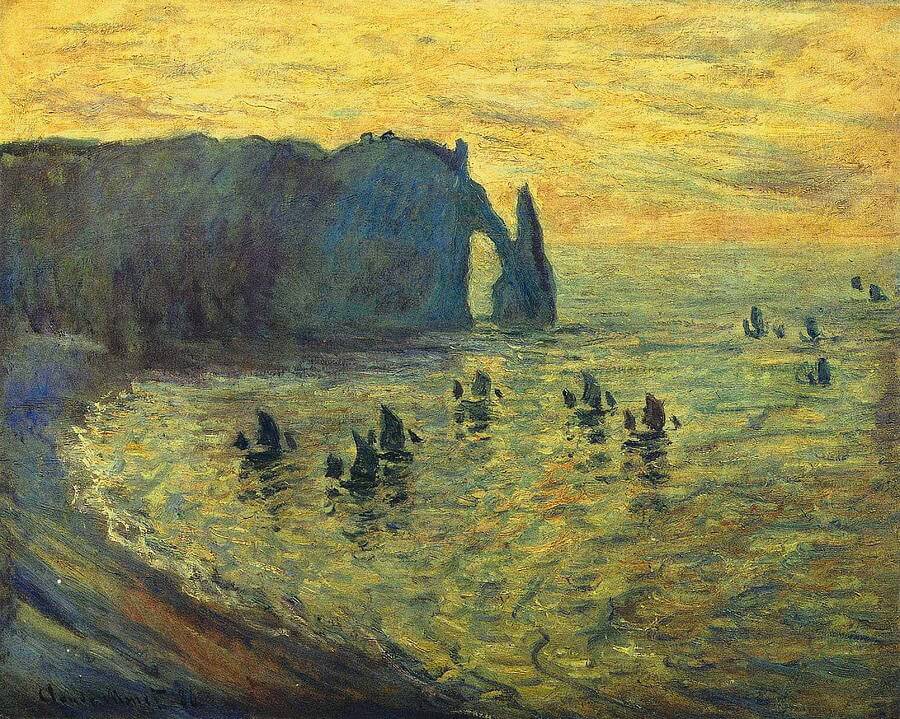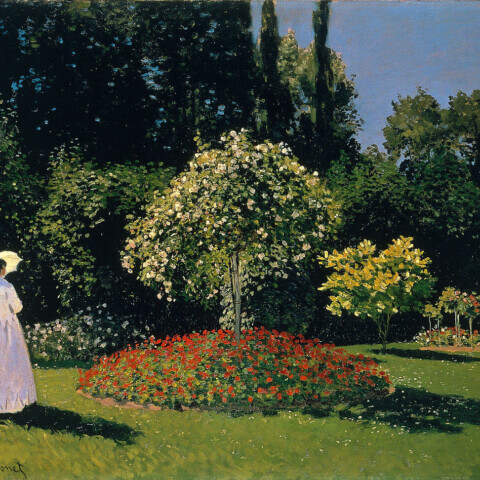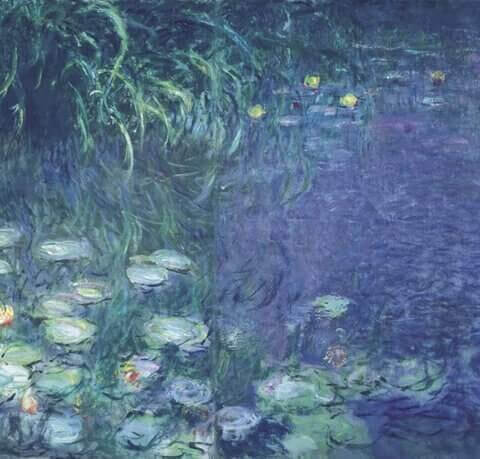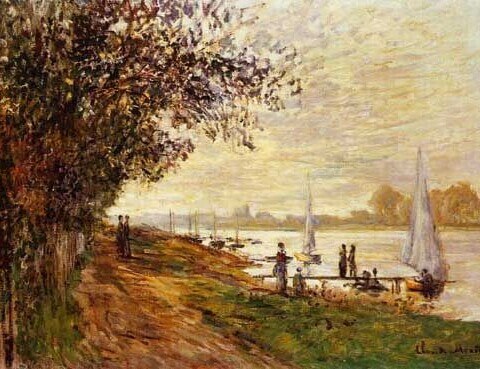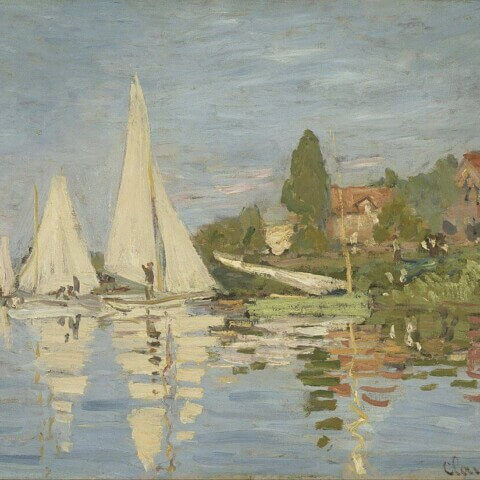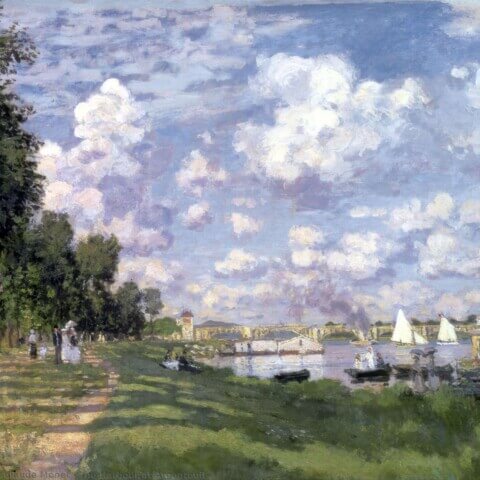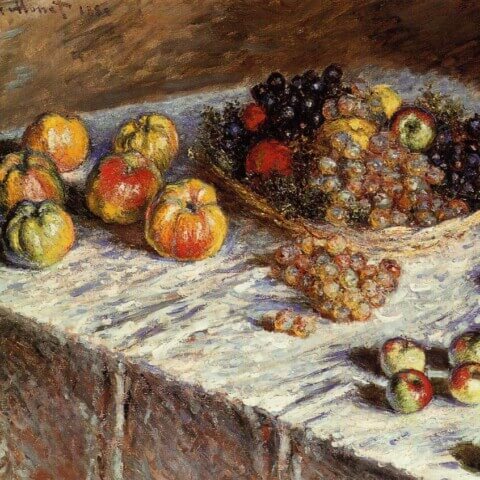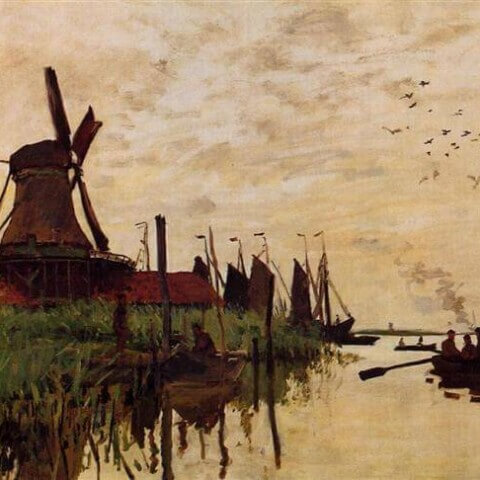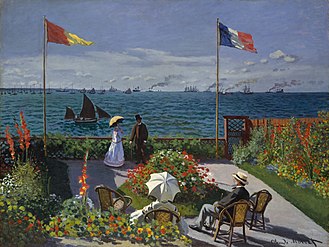Claude Monet, the paragon of Impressionism, gifted the world with one of his most stunning creations, “The Cliffs at Étretat,” painted in 1885. This painting is not only celebrated for its breathtaking portrayal of natural beauty but also for how it encapsulates the key principles of the Impressionist movement.
Étretat is a small coastal town in Normandy, France, renowned for its magnificent white cliffs, including three natural arches and the pointed formation called L’Aiguille (the Needle). These formations are not only geological wonders but also historic sources of inspiration for several artists and writers.
In “The Cliffs at Étretat,” Monet masterfully captures the fleeting impressions of the seascape. The painting displays a stunningly vibrant palette where the blues of the sea complement the whites and browns of the cliffs. Monet’s interest in natural light and color is prominently displayed in this painting. The changing hues of the sky and the sparkling light on the sea surface capture a particular moment, imbuing the painting with an ephemeral quality, a cornerstone of Impressionistic art.
This masterpiece reflects Monet’s technique of painting ‘en plein air’ (outdoors), which allowed him to study the transient effects of natural light. He painted several canvases from the same viewpoint at different times of the day, capturing the changing atmospheric conditions and varying moods of the sea and sky.
The cliffs at Étretat remain iconic in Monet’s body of work, not only for their picturesque qualities but also for their symbolic value. They represent both the power of nature and the transformative vision of the artist. Through his brush, Monet immortalized this unique landscape in a moment of time, conveying the vastness of nature and the fleetingness of human perception.
“The Cliffs at Étretat” stands as a testament to Monet’s dedication to capturing the evanescent beauty of the natural world. It is an emblem of Impressionism, demonstrating the movement’s commitment to portraying landscapes under specific conditions of light and color.
In conclusion, “The Cliffs at Étretat” is more than a painting; it’s a chronicle of Monet’s profound connection with nature and his revolutionary approach to painting. It is this amalgamation of exquisite natural depiction and innovative artistry that makes this painting special and a cherished part of global art history.
At our art gallery, we take pride in offering comprehensive global shipping to our esteemed clientele. We understand the significance of your art acquisitions and the need to transport them with utmost care. Hence, we are committed to delivering your chosen paintings to any address worldwide and free of any additional charge.
Our reliable courier service partners are experienced in handling precious art pieces and ensure that your painting reaches you in pristine condition. We offer fully insured, door-to-door delivery, providing you with peace of mind that your artwork is protected during transit.
Moreover, to accommodate your unique framing preferences, we offer the distinctive service of sending your purchased artwork directly to any framer across the globe. This enables you to have your painting framed locally by your trusted framer, reducing the risk of damage during transportation.
Regardless of your location or your framer’s, we strive to make the process as seamless as possible. It is our goal to provide exceptional service that caters to your needs and ensures the safe delivery of your valuable artwork.
We invite you to experience our hassle-free, worldwide shipping service, which is aimed at delivering your prized art pieces safely and efficiently, wherever you may be.
Similar paintings
Join our newsletter
Signup for our newsletter and receive our inspiration guide and 20% discount on your first order!

